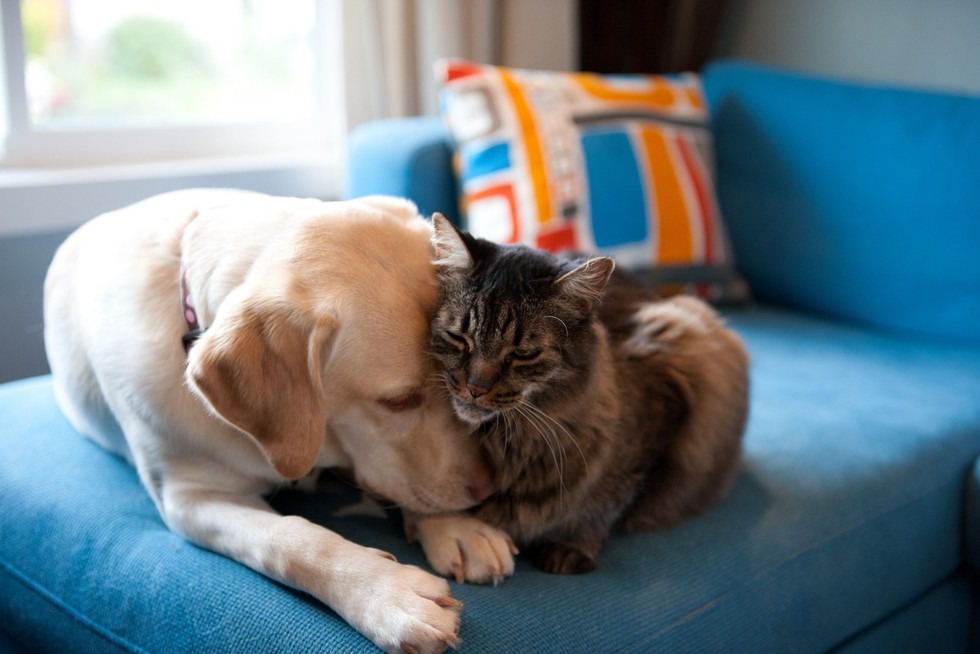
What Does Lifetime Cover Mean In Pet Insurance?
Pet Insurance
My cat, Mr. Whiskers, just knocked over my coffee cup for the third time this week. I guess I’ll be doing some extra cleaning today, but at least one thing is certain: my pet insurance is sorted. Lifetime cover? That’s a game-changer, and here’s why!
Lifetime pet insurance coverage is the top-tier option and provides the most comprehensive coverage for your cat or dog. Lifetime pet cover ensures your pet year after year for your pet’s lifetime, provided you don’t cancel your policy or allow it to lapse at renewal. Since many insurers exclude pre-existing conditions on new policies, many renew their Lifetime pet cover.
Lifetime pet insurance coverage is best if your pet has a chronic illness like diabetes or arthritis. Lifetime pet insurance is much more comprehensive than time-limited policies, which cover short-term illnesses and injuries, so they can be more expensive.
Lifetime pet insurance policies will cover any illnesses or conditions in the policy year, up to the policy limit you select. The policy limit is reset and applied again at renewal, which means you can always rest assured that your furry family member is covered as long as you are still insured with us.

What's Covered With Our Lifetime Pet Insurance Cover?
What’s Covered
- Veterinary fees for treatment up to £3,000, £5,000, or £10,000 depending on the policy you select (as detailed in your Policy Schedule), to cover all
- Including Dentistry, behavioral and complementary/alternative therapies
- Liability to third parties for injury and property damage for dogs up to £2 million per incident.
- The cost you paid for your pet, up to £1,500, if your pet dies as a result of an accident, theft or does not return after going missing after 45 days, or dies because of an illness before the renewal after their 9th birthday for dogs, 11th birthday for cats
- You get up to £1,500 towards the cost of advertising your pet if they go missing (including a maximum reward of £500)
- Boarding or pet minding fees of up to £1,500, if you’re hospitalized for two or more days or your pre-booked transport home from a holiday, is delayed or canceled.
- Holiday costs up to £3,000 if you cancel or curtail your holiday due to your pet needing emergency treatment within 14 days of your departure date
- up to £2,500 for quarantine costs due to illness or microchip failure
- up to £500 to cover the cost of getting any paperwork necessary to ensure you can return to the UK with your pet if your pet’s passport or veterinary certificate gets lost while you’re away or – because it does happen – your pet’s microchip doesn’t work.
- up to £2,000 for extra accommodation/transport costs if your pet needs to stay longer before returning home
- Read more about the policy limit for dental treatment for illness and injury providing your pet has had a dental examination in the last 12 months and all treatment advised as a result of the last dental exam was completed within 6 months of the exam being completed.
What's Not Covered
- Any injury that occurred or any illness that showed symptoms, before your pet’s cover starting, may not be covered. This will cover any injury or illness such as being caused or connected to the pre-existing injury, illness, or symptom
- Any illness or behavior problems or signs of illness or behavior problems presented in the first 14 days of the
- policy start date
- Within the first 48 hours of the commencement of the policy, any accident or injury that occurs
- Unless you have had the vaccination, disease conditions that are normally guarded against by a vaccination
- Preventative or routine treatment, examinations or tests, general health supplements, bathing or de-matting
- Any treatment related to breeding, pregnancy, or giving birth.
- Any food unless used as an alternative to medications
- Transplant surgery and pre and post-operative care
- Any claim related to your pet going to countries that aren’t covered in your terms and conditions
- Your policy won’t cover any loss or costs resulting from your dog worrying, chasing, or attacking livestock.
- Liability incurred outside of the UK.
How Lifetime Insurance Works?
Premiums can be paid monthly or annually, but maintaining the policy is crucial to ensure your pet’s ongoing coverage. You can also claim any vet bill (that is, health treatments included in your policy) incurred while your pet is insured. Lifetime pet insurance policies are less likely to cover pre-existing conditions, however, should your pet develop any health conditions while a lifetime policy covers you, that condition will have annual claim limit coverage. A lifetime policy will cover them for the condition even if it reoccurs later in your pet’s life, just until the monetary limit applies.
Coverage details
Add-ons will depend on the policy, but a standard lifetime policy covers:
- Vet Costs: Veterinary treatment fees are up to a specified limit depending on your selected policy. Your claim ceiling resets each year and past conditions will still be covered.
- Liability Coverage: If your pet causes damage to others or their property.
- Dental Injuries: Routine dental cover is not typically included in most policies, but any dental work required as a result of illness or injury will be accounted for in your policy.
- Cattery/Kennel Costs: The policy could provide cover for boarding costs if the owner becomes unwell.
- Lost or Stolen Pets: The policy may cover advertising expenses to locate a lost or stolen pet.
- Euthanasia: The policy may pay for the cost of euthanizing the pet, if necessary.
Coverage limits
Even lifetime policies have exclusions, however. As with all pet insurance policies, lifetime plans have some exclusions. There may, for example, be age limits, and some may just omit hereditary conditions from the policy.
Common coverage limits:
- Age Limits: Pets are usually covered from eight weeks of age, but there may be exclusions for older pets.
- Annual Limits Per Condition: There is a limit to how much you may file a claim for a condition in a given year.
- Max Amount Allowed Per Condition: The owner is responsible for any additional costs once the maximum amount is paid for a condition. The max allowed per condition could be a per-year or per-lifetime limit.
Conclusion

FAQ
In addition to lifetime cover, there are three other kinds of pet insurance to consider:
- Accident Only Pet Insurance. The most inexpensive type of pet insurance protects them against accidents but not illnesses.
- Time Limited Pet Insurance. It covers vet fees for a year, or until you reach the maximum, whichever is first, if your pet develops a health condition. After that, you’ll be responsible for any costs, whether or not you renew your policy.
- Best Value Pet Insurance Policy. This provides cover for your pet for a per-condition maximum amount but does not offer ongoing cover. After you’ve hit the maximum amount for a given condition, you’ll need to pay any additional expenses, regardless of whether you renew your policy.
Even though you can often get lifetime pet insurance for rabbits too, here at Compare the Market, we only compare coverage for dogs and cats. You may have to seek a specialist provider for insurance for other types of pets.
The cost of your lifetime pet insurance will be determined by several factors, including your pet’s breed and where you live. Certain dog breeds — think pugs and German Shepherds — are at risk of being born with congenital conditions, pushing their insurance premiums higher.
You can claim the same condition every year (depending on what kind of lifetime pet insurance you have).
Some policies have a maximum amount you can claim in a year. Let’s say this is £6,000 – if you exceed this you’ll have to pay for treatment until you renew, when you’ll have £6,000 worth of cover once more.
Other policies restrict payments to a maximum amount per year per condition. So, if your limit was £1,000 per condition and your feline friend had an infection costing £350 to treat, then diabetes costing £1,250, the first illness wouldn’t affect your second claim. But you’d only be able to claim for the diabetes — £1,000.

